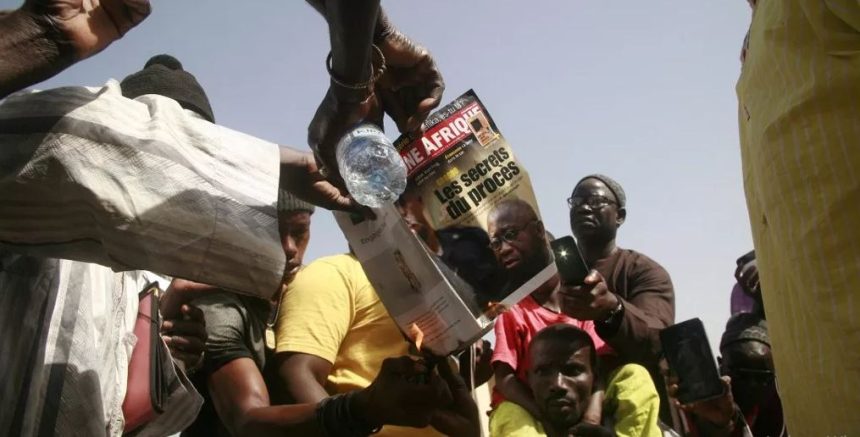Following the publication of articles inciting unrest inside the Burkinabe army, the French media outlet Jeune Afrique “protested” on Tuesday against the country’s government’s decision to suspend its broadcasting in Burkina Faso.
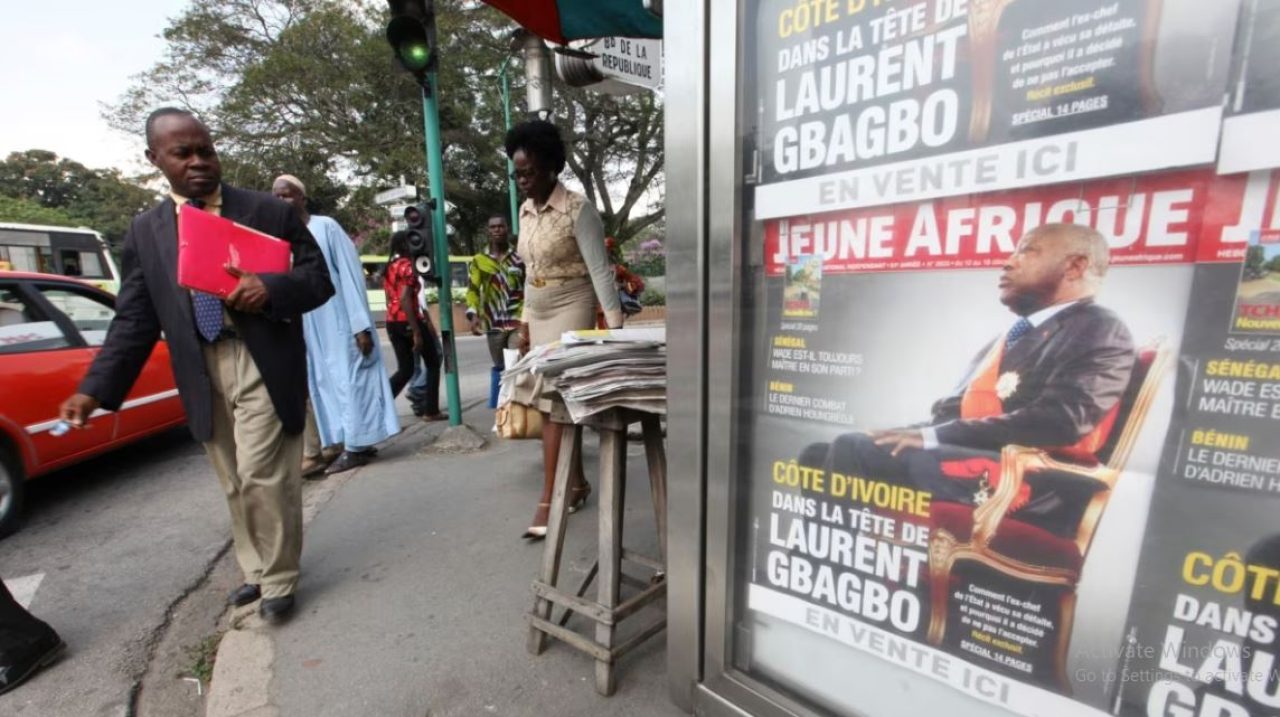
The broadcasting of various television and radio networks has been temporarily or permanently halted by the Burkinabe regime, which is now governed by the military following two coups d’état in 2022, and foreign correspondents have been removed, most notably from French media.
This suspension “is yet another attack on freedom of information in a country, that of Norbert Zongo”, wrote Jeune Afrique in a press release, referring to the Burkinabe journalist murdered in 1998.
The media organization also denounced “censorship from another age, while hoping that its authors will reconsider it”, asserting that it “contributes a little more to making the region, and Burkina Faso in particular, a zone of non-information”.

It was suspended for publishing what was described as “untruthful” articles that reported tension and discontent within the armed forces.
“This is not the first decision of its kind by the government. There was the suspension of RFI, France 24, LCI, and also of a widely listened to national radio station. Expulsions of correspondents, threats against local journalists, including our own correspondent, who had to leave the country. So obviously no. This is a serious attack on the right of the people of Burkina Faso to be informed and of journalists to do their work as rigourously as possible.”
the stoppage Monday came after the second story in four days that was published. this one, with the headline “Tensions in the Burkinabe army,”
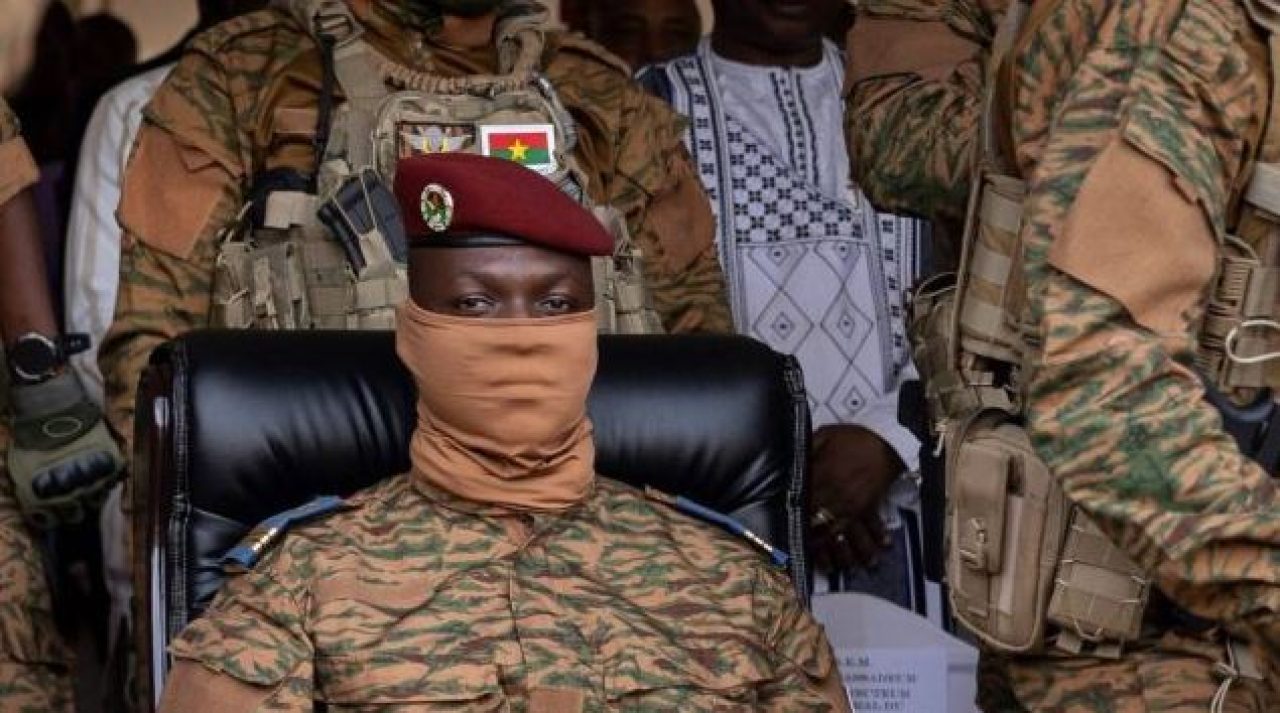
The publication was accused by the administration of “spreading chaos” and of trying to undermine the armed forces. Director of publication for Jeune Afrique, Marwane Ben Yahmed.
“This investigation was published, it is the fruit of a long investigation of cross-checked testimonies, to the point that there were rallies in Ouagadougou last night called for by junta supporters, believing that army soldiers wanted to overthrow Ibrahim Traoré. So this is proof that, on the one hand, we were right. And besides, whatever the accusations of intent, there are legal avenues, the right of reply, including the possibility of taking legal action.”
On Monday evening, Burkina Faso’s transitional government announced “the suspension until further notice of all Jeune Afrique distribution outlets in Burkina Faso as of this Monday, September 25”. In a press release, the authorities justify their decision by the publication of “a new misleading article on the Jeune Afrique website, entitled: Au Burkina Faso, toujours des tensions au sein de l’armée”.
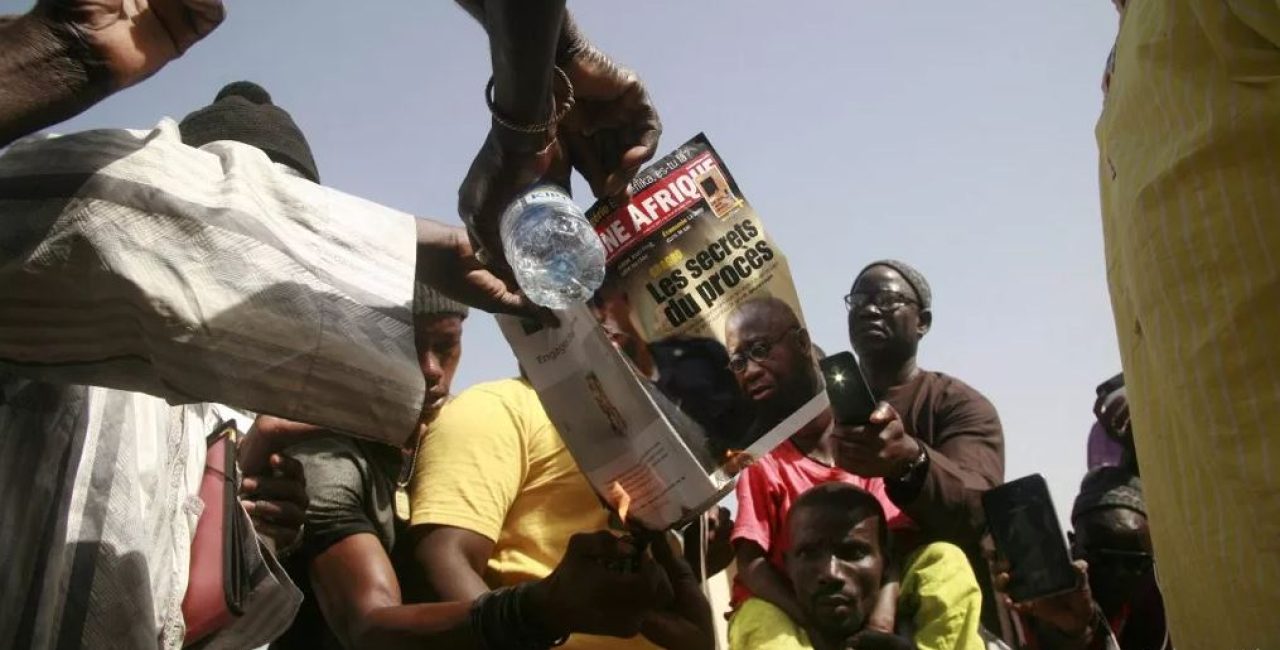
“This publication follows an earlier article on the same site”, published on Thursday, “in which Jeune Afrique alleged that in Burkina Faso, discontent is rising in the barracks”, adds the text, signed by Communication Minister Rimtalba Jean Emmanuel Ouédraogo.
Following rumours that there were attempts being made to undermine the executive branch, hundreds of supporters of the interim president, Captain Ibrahim Traoré, took to the streets of Ouagadougou on Tuesday evening to “defend” the administration.
“Jeune Afrique is the latest media outlet to be targeted by attacks from Burkina Faso’s ruling junta, which is trying to impose its own communications,” deplores a statement from Reporters Without Borders (RSF), which believes that press freedom “has been reduced to a trickle in the country”.
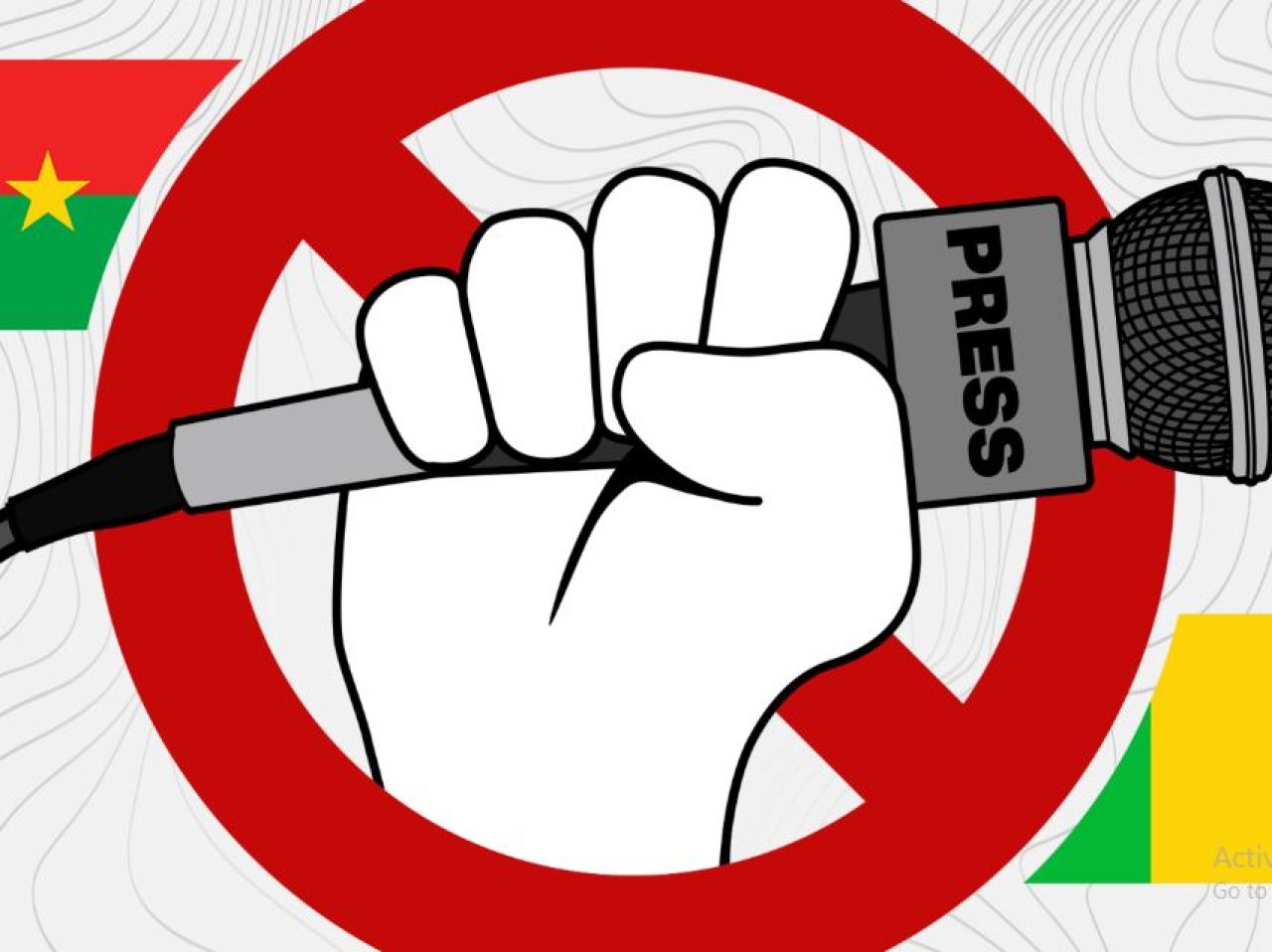
RSF “calls on the transitional government of Captain Ibrahim Traoré to cease these violations and respect the Burkinabe population’s right to information”. On Tuesday, the Jeune Afrique website was inaccessible without a VPN – a technical means of disguising the origin of one’s connection – in Ouagadougou, according to an AFP journalist.
The decision by the Burkinabe authorities comes almost a year after Captain Ibrahim Traoré came to power in a coup d’état, his second in eight months. In June, they announced the suspension of the French TV channel LCI for three months, after expelling the correspondents of the French dailies Libération and Le Monde in April.
According to the government, “these deliberate assertions, made without the slightest hint of proof, have the sole aim of discrediting the national armed forces and, by extension, all fighting forces”.
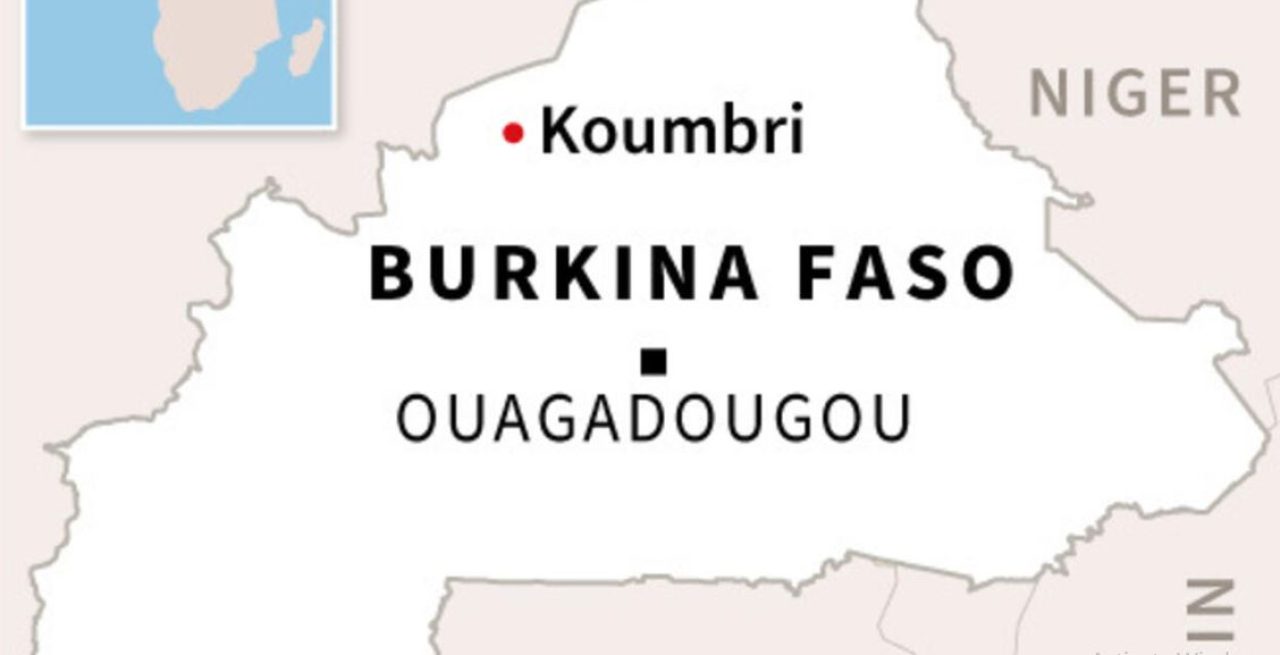
The choice was made almost a year after Captain Ibrahim Traore, the nation’s second coup leader in a matter of eight months, seized power.
The suspension has been characterized by Jeune Afrique as another incremental step towards making the region, and Burkina Faso in particular, a no-news zone.
